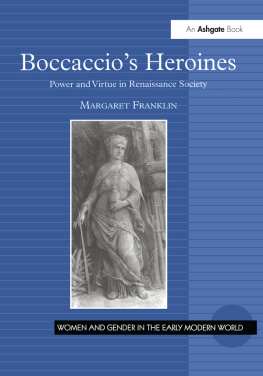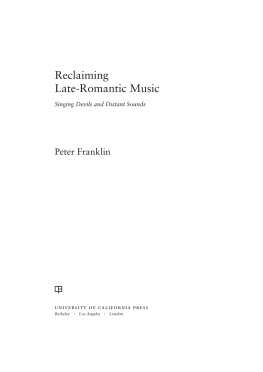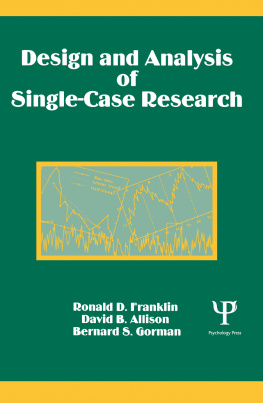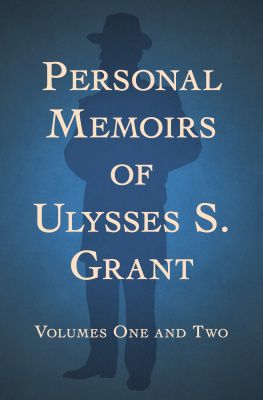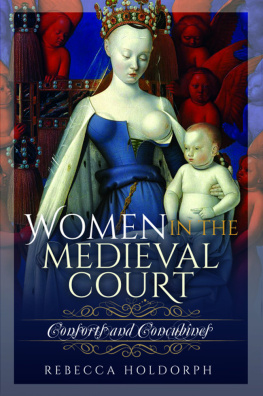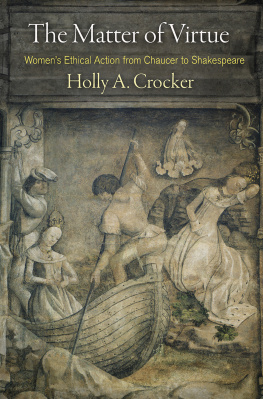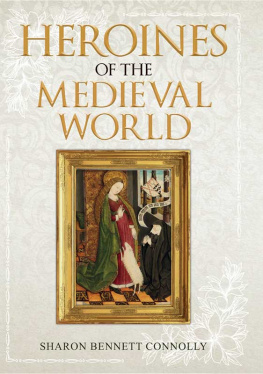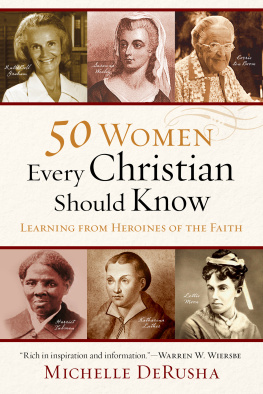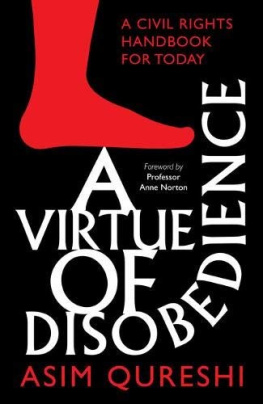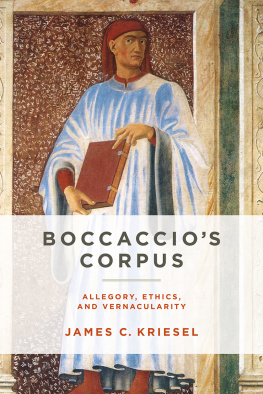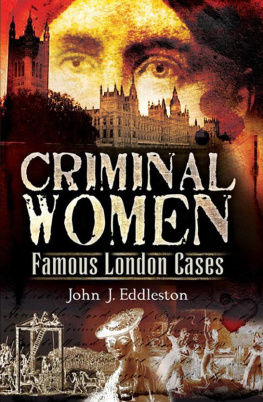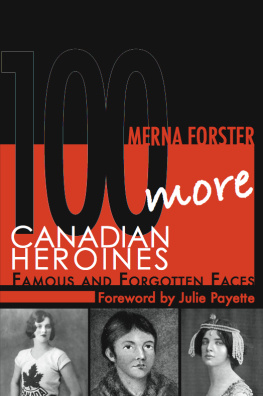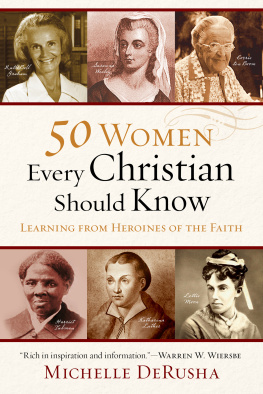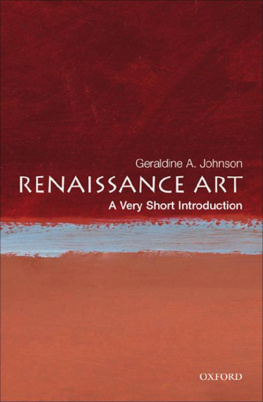BOCCACCIOS HEROINES
Women and Gender in the Early Modem World
Series Editors: Ally son Poska and Abby Zanger
In the past decade, the study of women and gender has offered some of the mostvital and innovative challenges to scholarship on the early modem period.Ashgates new series of interdisciplinary and comparanti ve studies, Woman andGender in the Early Modem World, takes up this challenge, reaching beyondgeographical limitations to explore the experiences of early modern women and thenature of gender in Europe, the Americas, Asia, and Africa. Submissions of singleauthorstudies and edited collections will be considered.
Titles in this series include:
Widowhood and Visual Culture in Early Modern Europe
Edited by Allison Levy
Architecture and the Politics o f Gender in Early Modern Europe
Edited by Helen Hills
Envisioning Gender in Burgundian Devotional Art, 13501530
Experience, Authority, Resistance
Andrea Pearson
The Medici Women
Gender and Power in Renaissance Florence
Natalie R. Tomas
Women, Art and the Politics o f Identity in Eighteenth-Century Europe
Edited by Melissa Hyde and Jennifer Milam
Boccaccios Heroines
Power and Virtue in Renaissance Society
MARGARET FRANKLIN
Wayne State University, USA

First published 2006 by Ashgate Publishing
Published 2017 by Routledge
2 Park Square, Milton Park, Abingdon, Oxon OX14 4RN
711 Third Avenue, New York, NY 10017, USA
Routledge is an imprint of the Taylor & Francis Group, an informa business
Copyright Margaret Franklin 2006
The author has asserted her moral right under the Copyright, Designs and Patents Act, 1988, to be identified as author of this work.
All rights reserved. No part of this book may be reprinted or reproduced or utilised in any form or by any electronic, mechanical, or other means, now known or hereafter invented, including photocopying and recording, or in any information storage or retrieval system, without permission in writing from the publishers.
Notice:
Product or corporate names may be trademarks or registered trademarks, and are used only for identification and explanation without intent to infringe.
British Library Cataloguing in Publication Data
Franklin, Margaret
Boccaccios heroines : power and virtue in Renaissance society. (Women and gender
in the early modern world)
1. Boccaccio, Giovanni, 13131375. De mulierbus claris
2. Women Biography 3. Women in literature 4. Women History Renaissance,
14501600
I. Title
851.1
Library of Congress Cataloging-in-Publication Data
Franklin, Margaret.
Boccaccios heroines : power and virtue in Renaissance society / Margaret Franklin.
p. cm. (Women and gender in the early modern world)
Includes bibliographical references and index.
ISBN 0-7546-5364-1 (hardback : alk. paper)
1. Boccaccio, Giovanni, 1313-1375. De mulieribus claris. 2. WomenBiography. 3.
Women in literature. 4. WomenHistoryRenaissance, 1450-1600. I. Title. II. Series.
PQ4274.D6F73 2006
851.1dc22
2005011772
ISBN 13: 978-0-7546-5364-6 (hbk)
Contents
I am grateful to the Wayne State University Humanities Center, the Wayne State University Research Grant Program, and the Deans Creative/Research Grant Program of the Wayne State University College of Fine, Performing and Communication Arts for their generous support of this project.
I thank Virginia Cox, whose gentle and uniquely informed guidance while I was writing my dissertation at The University of Cambridge helped to lay the groundwork for this book. Pamela Benson was generous with encouragement and constructive criticism; Christiane Joost-Gaugier has provided me with years of intellectual and emotional nourishment; and Dane Wittrup and Jean Rhodes contributed their multifaceted talents when they were most needed. I am most thankful for the family that provided the daily context of love, respect, and joy that made the long years of work fun and meaningful: my shining children, Aaron, Charlotte, Noel, and Julia, and my husband, Jamie, whose brilliance and tireless devotion are reflected in every page.
If we grant that men deserve praise whenever they perform great deeds with the strength bestowed upon them, how much more should women be extolledalmost all of whom are endowed by nature with soft, frail bodies and sluggish minds when they take on a manly spirit, show remarkable intelligence and bravery, and dare to execute deeds that would be extremely difficult even for men?
With these sentiments Giovanni Boccaccio embarks on Famous Women (De mulieribus claris, ca. 1360), stating that his text remedies a neglect by being the first biographical compilation comprising only famous women.
Renaissance ideas regarding the nature of woman were grounded both in scripture and in the writings of ancient physicians and philosophers. Foremost among the latter was Aristotle, whose theory of the processes through which human life is generated encompassed not only the creation of biological males and females, but also a defined and largely immutable constellation of behavioral and dispositional characteristics arising from the very substance of maleness and femaleness.
Medieval scholastics accepted Aristotles view of the relative merits of the sexes as engendered by the interplay of humors and body temperature. Along with a general dulling of faculties characteristic of the incomplete and imperfect, women were largely regarded as having a constitutional proclivity towards weakness, passivity, and irrationality. Aquinas fashioned much of his commentary dealing with the nature of woman on Aristotles arguments, and although he softened the Philosophers observation that the male rules over the female with a palliative of mutual esteem and division of labor, the beneficial subjugation of a wife to her husband was considered as compulsory as that of children to their parents. The social implications of Eves reliance on a male intermediary were, for Aquinas, not unlike those which emerged from Aristotles conclusions concerning the natural hierarchy of the sexes.
In Famous Women Boccaccio adheres to the notion that character traits are inherently male or female. That his book was received as a text which supported, rather than challenged, Aristotelian-based views of the nature of women, is apparent in a revisionist text written in 1405 by Christine de Pizan, an Italian author living in France. In The Book of the City of Ladies (Le livre de la cite des dames) Christine attempts to correct what she considers to be Boccaccios misinterpretations of female ability and motivations.
The durability of gender constructs based on principles of chemistry and physics withstood centuries of personal experience and the literary efforts of authors such as Christine, and continued to dominate social ideology during the Renaissance. The teleological vision that drove both Aristotles natural philosophy and the theology of medieval churchmen included notions of a systemized and necessary polarity between the sexes and the belief in a providentially ordained social order. Not surprisingly, those who wielded authority within this social order were deeply invested in its perpetuation.
Although best known to modern readers for his collection of bawdy tales told by young aristocrats in the

